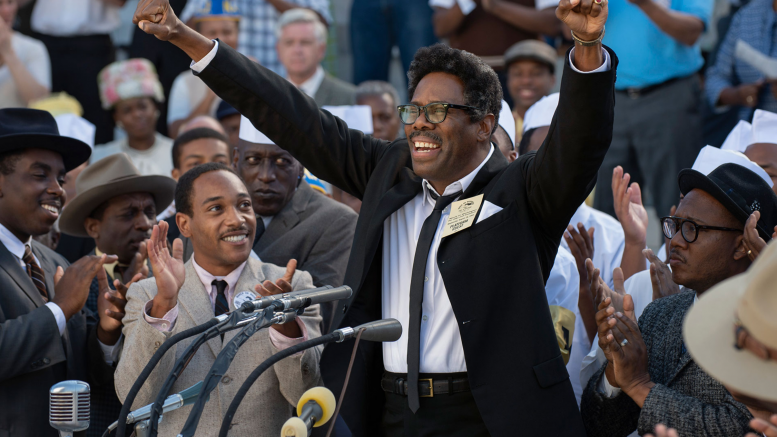Colman Domingo has just been nominated to win an Oscar for best actor. I hope he wins — and not just because he did an excellent job playing American civil rights leader Bayard Rustin in the recent film made about his life. I hope he wins and uses his platform, when the eyes of America and much of the world will be on him, to speak about who Bayard Rustin was, and his legacy.
Anyone making a film about the life of Rustin, or any other prominent individual, is forced to make choices. Not everything can go into a movie lasting at most a couple of hours. Choices are made. In the case of “Rustin”, a decision was taken to show the run-up to the historic 1963 March on Washington, which Bayard Rustin largely organised. The film shows how important an influence Rustin was on Dr Martin Luther King Jr. That demonstration was a work of genius and the film shows how Rustin, given precious little time, pulled off one of the most successful protests in history.
Director George C. Wolf and writers Julian Breece and Dustin Lance Black chose to focus attention on a few aspects of Bayard Rustin’s life during those few years. They neglected others. And the treatment of some of the characters in the film is, perhaps necessarily, superficial.
One of those is simply called “Tom” but it is obviously Tom Kahn, a leading figure in the democratic Left of that time and afterwards. Kahn was a brilliant thinker and writer and eventually went on to play an important role in the American labour movement. He was also gay. In the movie “Rustin” he is only gay. He’s a good-looking young gay man who becomes jealous of Rustin falling for another guy. That’s how most viewers will remember his character, not ever having heard of Tom Kahn before.
And to a degree, the same is true of Rustin. Let me clear about this: it’s very important to talk about Bayard Rustin’s sexuality, something that was not entirely possible during his lifetime (he died in 1987). But in addition to being a gay man, Rustin was an outstanding thinker and writer, a strategist, a powerful public speaker, and utterly fearless. Those were the things that I noticed during the brief time that I knew him and had the chance to work with him — most notably in fighting against racial segregation in housing at my university.
Bayard Rustin, like his mentor A. Philip Randolph (who fortunately is given a fairly prominent role in the film), was a socialist. Not just someone who casually had some “socialist” beliefs. He was elected a National Chairman of the Socialist Party in the early 1970s, briefly co-chairing the organisation with Michael Harrington and Charles Zimmerman. Harrington later resigned, and went on to found the precursor to today’s Democratic Socialists of America (DSA). Rustin’s socialism doesn’t get a mention in the film.
It is time to revive the memory of Bayard Rustin — the whole man and everything he stood for. In the film, Colman Domingo says “on the day that I was born black, I was also born a homosexual.” He was born that way, and he didn’t choose to be black or gay.
But there is also the man he chose to be: civil rights leader, fighter for human rights and democratic socialist.
This column appears in today’s issue of Solidarity.
